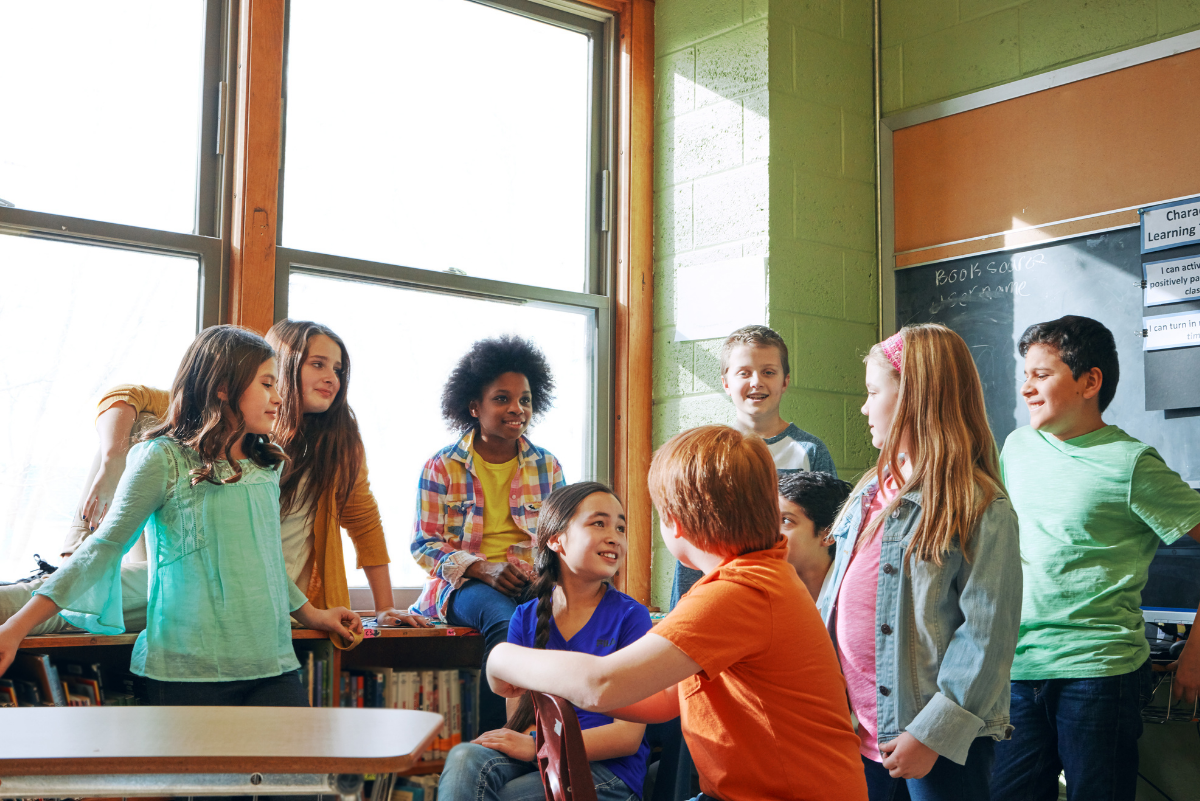
From managing stress to interacting well with friends, social-emotional skills are an important part of cognitive development. As a parent, it’s important to recognize that structured social-emotional learning will dramatically help your child’s education and personal growth.
What Are the Essential Social-Emotional Skills?
The term “social-emotional skills” refers to any behavior that allows a child to manage their interactions with their own thoughts and the people around them. Kids begin developing these skills as soon as they are born. As they get older, they’ll need help learning the following traits:
Self-Awareness: To be successful, children need to be able to recognize their own emotions and see how they are connected to their actions.
Self-Management: Understanding emotions is one thing, but managing them is another. This may mean stemming anger reactions, delaying gratification, and otherwise exhibiting self-control.
Social Awareness: Once a child understands their own emotions, they can become aware of the emotions of the people around them. This skill involves attention, empathy, and understanding.
Relationship Skills: As children become aware of their peers’ emotional states, they can start to form meaningful relationships. For young kids, this means being able to communicate, share, listen, and handle basic conflicts.
Decision Making: The culmination of social-emotional learning is the ability to make responsible decisions based on your emotional state. This includes thinking about yourself, the people around you, and the consequences of your actions.
Why Your Kid Needs SEL
Social-emotional learning refers to specific lessons that are intended to help a child learn the previous set of skills in a safe and regulated environment. Although the list may seem overwhelming, the truth is that these skills are taught by basic social interaction and calm, compassionate education. Your child will eventually pick up every social-emotional skill on the list; however, if you actively attempt to teach these skills, you’ll be able to help your child learn far more quickly and effectively.
In a Montessori classroom, teaching these skills looks like encouraging conversations, posing basic dilemmas, and maintaining awareness of the child’s progress to avoid pushing them past their natural rate of growth. If you ask a child to make a social-emotional decision that is too difficult for them, you might cause them to be stressed and avoid making those kinds of decisions in the future. Because of this, it’s important to pose questions and situations that are carefully curated by the teachers and other adults that are in the child’s life.
One thing that parents can do to improve their child’s social-emotional learning is to be a good role model. Practice active listening, maintain control of your own emotions, and generally display positive social interactions with the people around you. Dr. Montessori believed that kids absorb nearly everything that they see, especially when they are in the first plane of development before the age of six. If you practice good social-emotional skills, your children will quickly follow suit.
Good social-emotional learning is a standard part of a Montessori education. Contact Austin Children’s Academy to learn more about the education that we can provide for your kids.





















